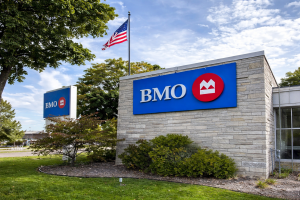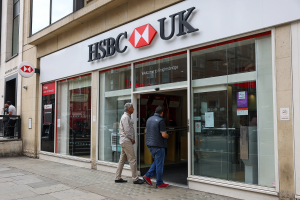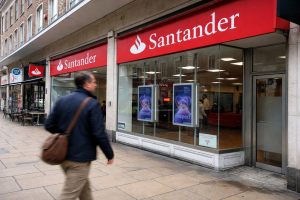
Investors
Swiss banking giant UBS is preparing to broaden its footprint in the United States by applying for a national banking license, signaling a strategic shift from exclusive wealth management toward full-service consumer and business banking.
UBS Group AG’s application marks a major milestone in its U.S. strategy. Traditionally known for private banking and wealth management, the Swiss lender aims to operate as a full-fledged bank across all 50 states. The move, filed through its subsidiary UBS Bank USA, would allow the institution to go beyond investment advisory and offer everyday financial products such as checking accounts, deposits, loans, and mortgages.
This change reflects UBS’s recognition that long-term growth in the U.S. depends on connecting wealth management with daily banking needs—offering clients a unified platform for managing assets, borrowing, and payments.
For customers, a nationwide license could translate into greater convenience. UBS clients would gain access to an integrated banking ecosystem—combining wealth management, credit, and deposit services in one place. Retail users could open checking accounts, apply for personal or home loans, and manage investments within a single digital interface.
Business clients, particularly entrepreneurs and family offices, could also benefit from simplified credit lines, mortgage financing, and liquidity management under a single brand. As competition intensifies among global banks and fintechs, UBS’s entry into traditional banking could bring better interest rates, improved digital banking tools, and broader credit options for customers.
Moving to a national charter would place UBS under direct oversight of U.S. regulators such as the Office of the Comptroller of the Currency. It would also expand its obligations to comply with consumer protection laws, deposit insurance standards, and digital banking regulations.
From a strategic standpoint, UBS’s decision highlights the bank’s growing confidence in the U.S. market. Competing with domestic giants like JPMorgan Chase and Bank of America won’t be easy, but UBS’s reputation in wealth management and its strong capital base could help attract affluent clients seeking integrated solutions.
The initiative aligns with a broader trend in global finance: the convergence of wealth management and retail banking. As interest rates stabilize and digital adoption accelerates, banks are looking to deepen customer relationships by offering a full suite of services—from deposits and credit to investment and mortgage solutions—through seamless digital channels.
UBS’s nationwide expansion underscores how major international banks are repositioning themselves for the digital, integrated future of finance. For consumers, it promises more choice and potentially better value. For the banking industry, it signals a continued blurring of lines between private banking, retail banking, and fintech innovation—a shift likely to redefine how clients save, borrow, and invest in the years ahead.
 Previous Post
Previous Post
Fintech Disruption in Banking: How Innovation Is Reshaping Deposits, Loans and Checking Accounts
 Next Post
Next Post
FirstSun to Acquire First Foundation in $785 Million Deal: A Strategic Expansion into California’s Banking Market

February 25, 2026

February 25, 2026

February 25, 2026

February 25, 2026

SKN | Banco Santander Sets Ambitious $23.6 Billion Profit Target for 2028

SKN | Post-2008 Reforms Under Review: How Banks Seek Simplified Rules and What It Means for Wealth Clients

SKN | Revolut Steps Into UK Regulatory Sandbox: Implications of Stablecoin Initiatives for Global Banking Clients